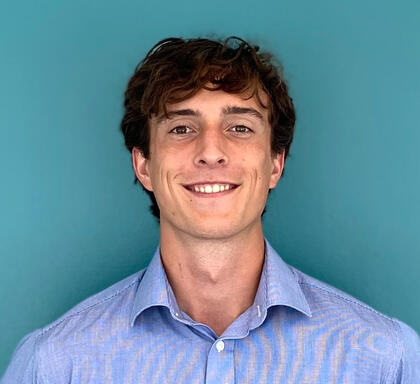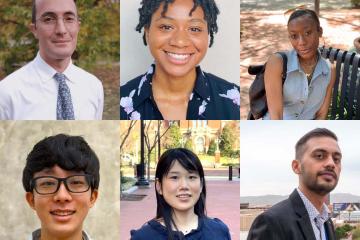Benjamin Biggs, Engr '23, a second-year doctoral student in biomedical engineering at Johns Hopkins University, is among 50 exceptional STEM scholars selected to receive a 2024 Quad Fellowship.

Image caption: Benjamin Biggs
The Quad Fellowship provides awardees from Australia, India, Japan, the U.S., and some Southeast Asian countries with $40,000 in academic support. The fellowship also includes networking, mentorship, and employment opportunities. Now in its second year, the program is designed to promote interdisciplinary scientific and technological innovation while empowering and building ties among the next generation of STEM leaders.
Biggs is from Sydney, Australia, and works in the lab of Jonathan Schneck, a JHU professor of pathology, medicine, and oncology. His research focuses on harnessing the power of the immune system to directly combat cancer; he is currently investigating molecular signaling strategies to expand a diverse repertoire of neoantigen-specific T cells, aiming to generate enduring and protective anti-cancer immunity. Biggs ultimate goal is to develop more effective, accessible, and personalized therapies for cancer patients worldwide.
"My research is primarily motivated by my family's long history of fighting cancer," he said. "But beyond personal experiences, cancer remains a global issue with currently insufficient treatment options. I hope to become a researcher who is driving the next generation of immunotherapies and advancing the standard of care for cancer patients who currently are without treatment options."
Biggs graduated with a bachelor's degree in chemical and biomolecular engineering from Johns Hopkins in 2023. As an undergraduate, he worked on research projects to improve chemotherapeutic drug delivery. Beyond Hopkins, Biggs has conducted research through internships at Genentech, Merck, and Shock Therapeutics.
In addition to the Quad Fellowship, he is one of 12 to receive the American-Australian Association Graduate Education Scholarship this year, which provides $40,000 to talented young Americans and Australians as they pursue graduate studies in each other's country.
Biggs says that receiving the fellowships has been a source of motivation.
"These awards represent two of the most prestigious opportunities available to support my work as an international researcher in the U.S., and afford me access to a network of other pioneering researchers from across the globe," Biggs said. "I'm excited to collaborate with my fellowship peers to tackle the biggest issues we face today, and hopefully gain a diverse perspective that will enrich my approach to tackling cancer through innovative new solutions."
Members of this year's cohort of Quad Fellows represent 12 countries and are pursuing graduate degrees in 41 distinct areas of specialization across 16 fields of study at 22 higher education institutions in the United States.
Tagged cancer, biomedical engineering, immunotherapy








